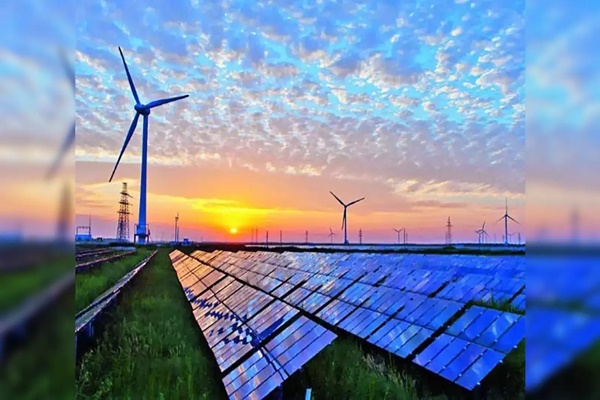Last Updated on January 22, 2025 7:02 pm by INDIAN AWAAZ

India is making significant strides in solar and wind energy capacity with a commitment to achieving 500 gigawatts of non-fossil fuel-based energy capacity by 2030. With the infrastructural push, the country’s non-fossil fuel-based energy capacity has reached 217 gigawatts by the 20th of this month.
Data shows that India is emerging as a global leader in clean energy capacity. According to the New and Renewable Energy Ministry, a record-breaking 24.5 gigawatt of solar capacity and 3.4 gigawatts of wind capacity have been added in the last year. Solar energy remained the dominant contributor to the country’s renewable energy growth, accounting for 47 percent of the total installed renewable energy capacity. Rajasthan, Gujarat, and Tamil Nadu emerged as the top-performing states, contributing 71 percent of the country’s total utility-scale solar installations.
The Ministry said, the rooftop solar sector also experienced significant growth last year, with 4.59 gigawatts of new capacity installed, marking a 53 percent increase from the year 2023. The PM Surya Ghar: Muft Bijli Yojana played a crucial role in this expansion, facilitating seven lakh rooftop solar installations within ten months since the launch of this scheme.
On the wind energy capacity front, India added 3.4 gigawatts of new wind capacity last year with Gujarat, Karnataka and Tamil Nadu leading the way. These states accounted for 98 percent of the new wind capacity additions, highlighting their continued dominance in wind power generation.
